Text
Can Your Treasure Coast Smart Home Outsmart a Storm?
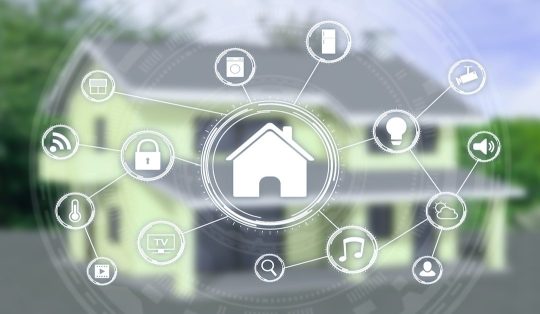
Can your Treasure Coast smart home outsmart a storm? As high tech as our contemporary homes are we are still at the mercy of Mother Nature each time a major storm rolls through. As we write this, Hurricane Isaias is on it's way to Port St Lucie Florida. While there's not much you can do to put a stop to strong winds, power outages, and flooding, the ideal smart house tech can offer you a leg up in maintaining your home protected in the middle of a crisis.
As you put together your emergency kit and emergency program, consider these wise house recommendations -- they can make all the difference between a short-term annoyance and a long-term disaster.
Stay Connected Even When the Grid Goes Down
Before you invest in several smart house tools, you will want to be certain you have the energy you need to keep those tools going when you need them the most. Invest in an uninterrupted power source (or UPS) to maintain your net connection and WiFi operational during the next power outage. A UPS can kick at the moment the power drops, and also a mid-range device are able to keep your critical systems operating for 12 hours or longer.
If you reside in an area that's prone to hurricanes or other natural disasters which can result in long-term outages, consider investing in a small generator that will power your technician for days and maintain essential appliances (such as the fridge, HVAC system, and medical devices) up and running.
Read the full article
0 notes
Text
Securing Your Tech and Your Home With Apple HomeKit
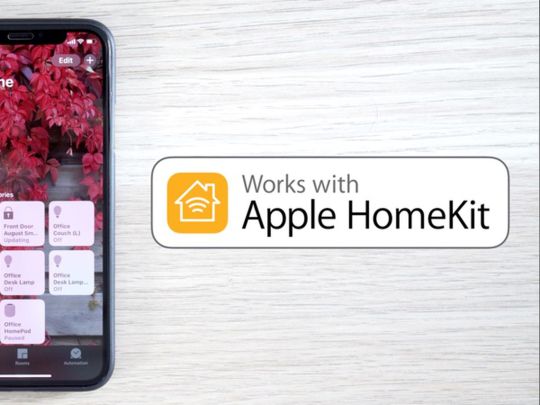
I recently purchased a set of safety cameras to cover the area around my house. I live in Port St Lucie, and while I'm not so concerned about burglars, however, I believed it couldn't hurt to have some protection. One of the things that nudged me in this course was the fact that the cameras I bought, NetGear's Arlo Pro, and Apple's HomeKit.
HomeKit is a framework that runs beneath the hood on macOS and iOS unless they've researched home devices, and it is ignored by individuals. HomeKit is quite easy to establish and use, also it provides you with a powerful and secure method of controlling"smart home" devices such as smartphones, lighting, doorbells, heating, and more.
What is HomeKit?
HomeKit -- a framework to manage and command home devices was introduced by Apple --in 2014. It took a while for apparatus to become HomeKit compatible, in part because Apple initially needed devices to have a special encryption chip. They since changed the requirements to permit software authentication, and, as previously mentioned, you can now discover devices that encourage HomeKit in several classes: lights, sensors, security apparatus, speakers, thermostats, and even longer; you can locate a comprehensive set on Apple's website.
HomeKit functions in the background on your network. All the configuration information on your devices gets shared by means of your iCloud accounts, and you are able to control them with Apple Watch, iPad, Mac, as well as your iPhone.
Read the full article
0 notes
Text
Cybersecurity and the COVID-19 Digital Landscape
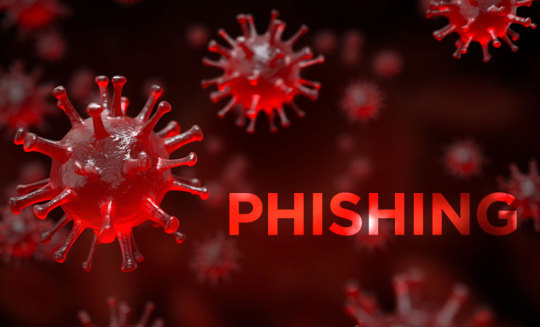
Working from home these days is increasingly more widespread. Particularly if your kids are being homeschooled. Cybersecurity and the COVID-19 Digital Landscape has changed now we do almost everything exclusively online. Now, more than ever we're hyper-connected to our devices. Whether desktop, mobile, and everything in between, now more than ever is cybersecurity a necessity. It is estimated that cybercrime cost taxpayers and businesses across the globe $600 million in 2018. A great computer repair company in Fort Pierce can assist with all of the below
COVID-19 Phishing and Malware Scams
We've got all seen emails and websites promising to keep us protected from the COVID-19 pandemic. They supply information, data, tracking, and security information. Many are scams: arenas for malware or ransomware and/or phishing to steal passwords and data.
Be wary of any emails, websites, downloads, or links that provide help linked to the coronavirus. Do not download anything or input credentials -- usernames, passwords, bank account/credit card numbers, Social Security numbers, etc.. -- unless and until you've confirmed the validity of the origin of information. Ensure the links you click come from reputable sources. If you're not certain of a connection sent by someone you know, ask them.
Situations of malicious emails, sites, and apps right now:
Links to login screens to get files (OneDrive, Office 365, Google Drive, Dropbox or other cloud-hosted record providers )
Websites and programs that reveal heat maps and numbers of coronavirus spread around the world
False emails from a college for its students, or by a business to its workers, promising updates regarding closures
Emails from entities posing as the World Health Organization or the Centers for Disease Control and Prevention
A lot of us are eager to click to the info offered in the instances above at this time, either to do our tasks remotely or to keep on top of world events. Not one of those deceptive methods are brand new -- world events have been targets for ages. But sites and emails with malicious intent are rampant enclosing the COVID-19 pandemic. We should all be ready and vigilant and aware that cybersecurity is more significant than ever.
At the exact same time, many people are working at home. A whole lot of the work force is fresh to remote work. We're in a new environment, with fresh distractions. The majority of us must remain focused on possible threats to keep our families and our associations safe from threats.
Measures you can take to prevent getting your computing and network accessories hacked
(Notice that all these are subject to the policies put in place by your business.)
Don't discuss your work notebook with family members. Do not allow relatives on your home PC if it's linked to your work PC, and do not join any of your home computers to your organization's VPN.
Attempt to work in securable environment, a home office, or spare space. If you can't, keep your work gear and newspapers in a secure space. A computer repair company in fort pierce can help you create a secure work environment for your technology.
Keep your operating system updated. Your organization probably handles upgrades for your company-owned PC or laptop, but they can't handle your home PC. If you've got a Windows home computer(s), then be certain you are utilizing the built-in security upgrade features to keep them up to date. Mac operating systems have built-in safety updating.
Install and scan your pc with anti virus software. When you have got a company PC or notebook, you probably already have this. If you have got a home computer, then there ought to be a security center for all your security preferences. Try typing"security" in the local search bar and see whether you have anti-virus software installed.
Updates for Your Hardware Too
Be sure you have your in-home wireless router current. Find the setup fast start guides or find the model number and search the internet for the assistance of your own gadget. It is also possible to call your internet provider if they supplied you with wireless access. Odds are it has an update feature.
Make sure your smart home devices exist. If they've passwords, make sure they are secured and never precisely the same as any other passwords you're using.
In case you have not already, update your mobile phone's software. Furthermore, put your cellular device(s) to automatically upgrade.
Be careful about opening your private email. Don't be duped by claims of websites and apps that will inform you concerning the coronavirus or associated scams.
Individuals working in the home are targets. The present scams look real, and it is easy to be duped. Stay attentive and be leery of emails and sites until you are able to confirm they are secure.
In case you have questions or concerns, make sure you reach out to the computer repair professionals in Fort Pierce. They're your first line of defense.
Read the full article
0 notes
Photo

From Vero Beach down to Miami, The NY/FL Nerds is there to protect you and your data. Sammy’s on her way to a client who experienced a breach in their security. https://www.instagram.com/p/B55XtuxAXjP/?igshid=1ompslhpeyngm
0 notes
Text
Business Data Protection: How to Keep Your Customers' Data Secure
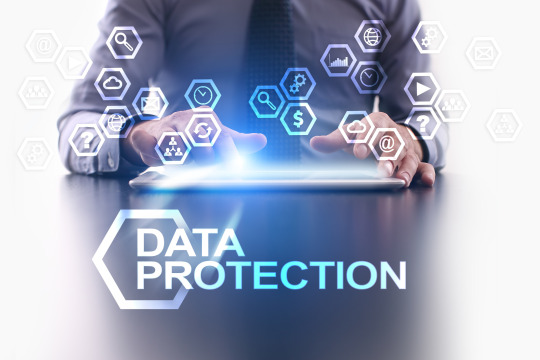
Keeping client data safe is vital for any business. We look at some of the key steps you need to take in order to have strong business data protection.
How would you like to wake up to a $3 million hole in your balance sheet? That's how much your business could lose after a cybersecurity breach. Aside from the financial hit, your company's reputation can take a severe dip that’s hard to turn around once malicious actions strike. With such stakes on the table, ensuring your business has top of the line cybersecurity is critical to its survival. Let’s take a look at some business data protection ideas to help you preserve your customers’ security and privacy.
1. Use Strong Passwords
Passwords are the first line of defense against unauthorized access to your firm’s information, but they can only be effective when appropriately used. Your employees must use different passwords for each system they access. It may feel cumbersome, but it’s hard to steal data when you need a new password with each instance.
Adopt a password manager so that your staff can find it easier to use different passwords on each system. With a password manager, all they will need to do is recall one master password.
Additionally, use strong passwords that rely on at least eight characters, numbers, and symbols. These are harder to crack and help stop more straightforward breaches in their tracks.
You should also sensitive your staff on best practices in using passwords while at work. Train them on avoiding passwords that are easy to guess, such as birthdays or the names of family members.
You can also begin timing out passwords across the system. That will give your staff the impetus they need to regularly change their passwords as a stale one gets easier to crack in time.
2. Regulate Access
How your team access the information they require has an impact on the level of security your system has. It is not every employee that requires unfettered access to the system to get their work done. A mandatory login system is an elemental requirement that helps screen which employees are using the system and for how long.
Once you adopt a login system, you can make automatic logouts after a set period a feature. That way, should an employee leave their device unattended, the chances of an intruder accessing the system via such a device are minimized. The automatic logout period should not be too long, but neither should it be too short as that can interfere with the team's workflow.
When an employee leaves the organization, you should immediately revoke any access rights they had to avoid potential breaches. These privileges include any passwords, access codes, or keywords they used while working for the organization.
3. Disposing of Data Correctly
How you get rid of the customer data you already have can be a loophole in your security unless you do it properly. Developing a data destruction policy for your business codifies the protocol that present and future employees can use when it comes to protecting your data during destruction.
When you are getting rid of devices the business has been using, you should take care to scrub the data off them. Failure to do that might allow a malicious actor to retrieve sensitive company information that compromises the safety and privacy of your customers.
It’s not just the hardware that needs a destruction protocol but also your software. For example, when you delete customer information from your hard drive, it does not mean it’s gone. Similarly, reinstalling your operating system doesn’t wipe all your data.
A malicious actor can easily gain access to your information using free data retrieval tools. In such cases, you should make sure that your data disposal partner overwrites the data you want to delete several times. That will make it unrecoverable even with retrieval tools.
4. Automatic Updates
A favored method of conducting cybersecurity breaches bad actors use is to scan a firm's system for old software that has known bugs. Since these system vulnerabilities date back to a previous period, there is a public record of how to use them for exploits.
In light of this, you need to set the software the firm uses to download and install new updates that developers push automatically. Installing the latest fixes and patches helps minimize the possible points bad actors can use to hack into your system and steal customer data.
5. Secure Online Payments
Do your customers pay using online platforms? Then that increases the probability of your being a target for malicious actors. Customer transaction information is valuable on the black market, and how you store, hold, and transmit customer card information is critical.
The Payment Card Industry Data Security Standards (PCI DSS) outlines basic PCI security standards a business should adopt to protect their customer card information. Adopt these standards across your system to ward off potential card-related breaches.
6. Only Keep Data You Need
While data is the new oil, you don’t need to hoard every bit of it if it doesn’t help your business. The more information you hold, the juicer of a target you become in the eyes of malicious actors.
For example, if you only need the customers' names, then storing their birthday information only increases the probability that you will get hacked. Vet the customer data you hold to assess its importance in your operation so that you avoid any unnecessary risk.
7. Draft a Breach Policy
Part of keeping your customer data safe involves knowing what to do once you detect a possible data breach. You need a premeditated plan that everyone in the firm can follow to ensure customer privacy and safety after a reach.
Conduct a network security audit to identify potential weak spots in your core infrastructure that needs addressing. You can follow this audit up with a further assessment of auxiliary units in your technology infrastructure to close off any loopholes that an intruder can use.
Once you spot and close off all weak spots, use the information you’ve gleaned to document every part of your business' technology system and possible actions to take during an attack.
Do You Need Business Data Protection?
Every year businesses stand to lose money and suffer damaged reputations due to cybersecurity breaches. Such extreme risks make business data protection a high priority in your overall strategy. Protect your customers’ security and privacy to differentiate yourself from the pack.
Do you have a cybersecurity emergency? FL Nerds has 20 years' experience in helping firms protect their customer data. Talk to us for round the clock assistance on keeping your technology system safe.
Read the full article
0 notes
Text
5 Things to Look for in a Computer Repair Store
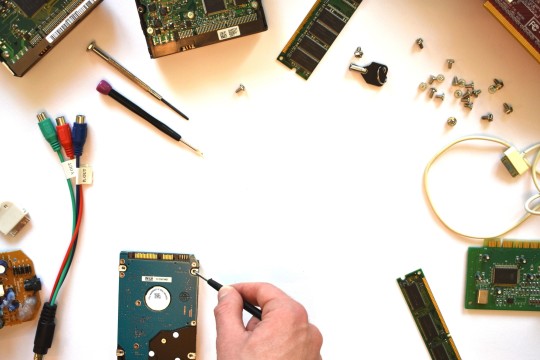
Has your computer been having problems working lately? Are you trying every avenue possible to fix your computer on your own without much success?
If so, then it's time to visit a computer repair store in your neighborhood. However, it's important to know which store has the qualifications needed to solve your issues before you spend your time and money on them.
With our knowledge of computer services, you will be able to find the right company to take care of issues that your device encounters.
Here are five things to look for in a computer repair store.
1. Evidence of Qualifications
One way that you can determine if the PC repair shop in your area is qualified to fix your problems is with its credentials. Not only should the store have the licenses needed to fix your laptop, but they should also keep their licenses updated.
You can ask the company for proof of these credentials in person or check on their website. These licenses should allow them to deal with issues ranging from broken hardware to breaches from hackers.
Call your local licensing authority for further clarification in case they haven't updated their website. The store should also have liability insurance so that you don't have to pay for mistakes made during a repair.
2. Variety in Services
Some of you may have recently encountered a hardware issue with your laptop, while others may be more concerned about software or problems. If you're looking for computer repair places, that you can count on, we recommend a store that can handle both areas.
One issue that the store's technicians should have experience solving is viruses, which can come in different forms while you surf the Internet. They should also know how to retrieve data that might have been lost during the infection, such as projects for work, legal documents, banking information, and home addresses.
Make sure that the store has also hired people who can fix any physical damage to your computers, such as cracks in the screen or a piece falling off. Additionally, the technicians should be able to recommend accessories or replacements that will prevent such damage in the future.
If you're new to how to fix or set up a network for Internet access, then find a repair store that can help you. The right team will be able to show you how networks work, which ones are more reliable, and how to set up networks in different places on your own.
3. Customer Service Track Record
While computer repair stores can guarantee high quality in their services, a second opinion comes in handy for validation. That's why we recommend finding reviews of their repairs.
Check their website for testimonials about how the company was able to solve a variety of issues. Consider how the store was able to ensure security, replace hardware, and help customers save time and money with repairs.
Don't consider stores that don't show at least an 80 percent approval rating in online reviews. We also advise not going with a store that doesn't post testimonials, as they could be hiding a history of customer dissatisfaction.
While looking up reviews online can save time, some proof of service is best observed in person. In order to get more personal proof of good service, go to stores to see how they handle customers' needs.
When you are checking out prospects, keep an eye on employees who are helping customers with PCs. See if they look happy and consider if you've seen them at these stores before.
Listen to how the technicians answer questions and provide samples of products and services. The more knowledge you get from these professionals, the more potential they have as your go-to store.
4. Opportunities to Save Money
Are you on a budget but need your laptop fixed soon for a big project with work? If so, then look at stores that have services fitting of your financial needs.
You can check the prices for different stores' services on their websites. While the cheapest options may seem like the best, check reviews to see if customers had to sacrifice the quality of their computers.
If you want to avoid buying a new computer, then consider stores that can revive an old computer. This will give you an extra laptop to use, as well as help you avoid expensive repairs.
Another way you can save money with repairs is with service guarantees. A warranty lets you know how long these repairs will last, and those that last for at least a year show that the company is confident in its services.
Don't forget to ask for free diagnostics so that you don't spend money on parts that don't need fixing. Estimates also let you know what the issue is so that you have an idea of the cost.
5. Flexible with Schedules and Locations
The best computer repair store will assist you no matter where you are or the time of day. That's why we advise sticking with stores that are flexible with the schedule and your location.
Prospects should be able to help you when you're out of town, such as when you're on a business trip or family vacation. Such stores must know how to take care of issues ranging from ineffective hardware and cybersecurity.
One way that stores can be flexible with time is by providing services 24 hours a day, seven days a week. An emergency can come right before you go to bed while reading your emails, so you should have the option of calling them so that you aren't looking at worse problems in the morning.
A 24/7 service can also come in handy in case you let a friend or relative use your computer. They can talk to a technician while you're at work or out with other people for dinner.
Our Take on the Best Computer Repair Store
The search for the right computer repair store for your problems requires a variety of factors to consider. They must have a proven track record that they can provide themselves or through customers.
Your prospects must also be flexible with their availability, as well as their knowledge of different issues that computers encounter. With these tips, you will be able to find a store that can keep your laptop in proper condition on a regular basis.
For more of our digital technology expertise, check out our guides today to keep your gadgets consistently safe and operational.
Read the full article
0 notes
Text
How to Prevent Computer Viruses: 9 Tips to Keep Your PC Safe
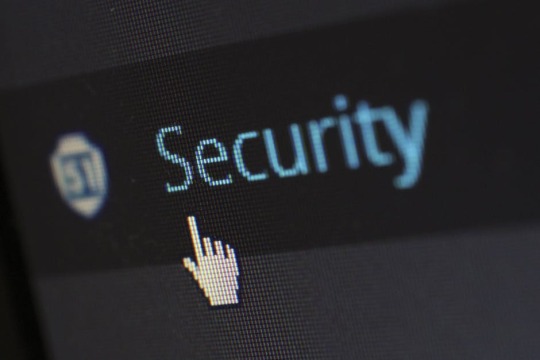
Do you think those basic security features on your computer are enough to provide protection from malware?
Think again.
2018 was the year of the "mega-breach" in malware attacks, affecting big businesses like Facebook, Quora, and Marriott. In fact, the number of records compromised increased by 133% from 2017.
If it can happen to billion-dollar businesses, it can happen to you too. As the number of security cyber threats grows, you must know how to prevent computer viruses.
In this post, we'll reveal 9 vital tips to protect your computer from cyber-attacks. Read on to learn more—your personal and business security depends on it!
1. Use Strong Passwords
Let's start with the basics—your passwords.
The most commonly used passwords in the cyber world are also the worst. As of 2018, the top 3 passwords in use were:
123456
password
123456789
And people wonder why we have security breaches everywhere?
Keep your data safe by creating unique, complex passwords. The best passwords include a mix of numbers, letters, and symbols and are at least 8 characters long.
While we're on the topic, avoid using the same username and password combination across multiple sites. If a hacker can access just one site, you've left the door wide open to the rest of your data.
2. Keep Everything up to Date
Another basic step to take is to make sure you have the latest versions of all software installed on your devices.
Why is this so important? Because software updates include features designed to withstand the latest security threats. Microsoft, Oracle, and other makers regularly update their software to eliminate "bugs" that hackers could exploit.
If you're operating a system from 3 years ago, it's defenseless against any viruses or malware developed in the interim. Make it a habit to install all new software updates as soon as they become available.
3. Use Antivirus Software
Next up on our list of how to prevent computer viruses is—no surprise here—antivirus software.
Antivirus software acts as a "vaccine" against virtual viruses. It can identify and eliminate the threat before you were even aware of it.
Microsoft Security Essentials and Avast are both free antivirus programs you can install. There's also a host of paid options, although experts debate whether the extra cost is really worth it.
4. Use a Firewall
Using antivirus programs doesn't automatically mean you have a firewall.
Macs and PCs both come with pre-installed firewall software. Make sure it's enabled to provide an extra layer of protection from viruses and malware.
5. Install a Popup Blocker
Many attacks happen through browsers, as you're going about your daily online routine. Hackers can gain access to your computer from one innocent click on the wrong ad or link.
An ad or popup blocker is essential to protecting your computer's data. It will prevent any unwanted pages from opening automatically.
Never click on, open, or download anything unless you know exactly who it's from. This is especially important with emails, which is our next topic.
6. Beware of Email Phishing Scams
32% of reported security breaches begin with a phishing scam.
These appear in email form under the guise of a legitimate company. The goal is to get you to either enter personal information or click on an infected link that allows access to your computer.
Any legitimate company will have its own domain name for emails. If an email address claims to be from Paypal or Netflix but ends with @gmail.com, it's a scam.
Other signs include misspellings, poor grammar, and suspicious attachments, buttons, or links. A legitimate company will never invite you via email to log in and provide personal or billing information
Here's a good rule to live by—if in doubt, don't click on it!
7. Educate Your Family & Staff
Most cyber-attacks happen through an innocent action by an uninformed person.
This could be a member of your family, a child, or an employee who isn't aware of smart internet practices.
If you have any doubts about anyone who uses your computer, take a few moments to teach them the basics. Review a few points from this post, such as not opening emails or clicking on links from unknown sources.
A few moments of education could mean the difference between cyberattack success or failure.
8. Know the Signs of Infection
Despite your best efforts, computer viruses can still happen.
Do you know how to identify a virus on your computer? Here are a few things to watch for:
Repeated error messages
Unexpected shutdowns
Computer suddenly slows down
Takes too long to shut down or restart
New toolbars you didn't install
Changes to your homepage
Rapidly draining battery
Any of these signs could mean your computer is infected. If you see more than one of these signs, you almost surely have a virus.
Make sure all your software is updated and then perform a scan. You can also search online forums for users who have similar issues and see how they were able to solve them.
9. Consider Additional Security Features
At the very least, you should perform weekly or even daily backups of all important data. Store it securely in the cloud or on a separate hard drive.
That way, if you do accidentally get a virus, your vital information won't be lost or compromised.
For extra protection, you might also consider advanced security measures like endpoint security. This protects not just your computer but your network as a whole.
How to Prevent Computer Viruses: Now You Know
So, how can you protect your computer from viruses?
Much of the defense starts with you. Use antivirus software and keep your programs and software up to date. You should also be proactive with firewalls, popup blockers, and strong passwords.
Of course, the more your business grows, the more you have to lose. These basic precautions for how to prevent computer viruses are a start, but will they be enough?
Don't leave it to chance. Click here to learn more about our advanced security services and how it can keep your data safe.
Read the full article
0 notes
Text
Which Wi-Fi Router is Most Secure For Home/Soho Users?
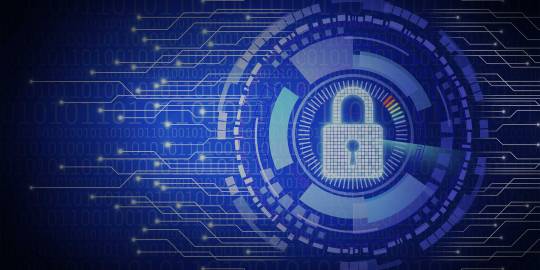
With the proliferation of smart homes, Wi-Fi connectivity has become a must-have for many families these days. Really, you can’t fully enjoy the new wave of home products, smart TVs and mobile devices without Wi-Fi connectivity. And to enjoy Wi-Fi connectivity, you need secure routers. These are devices that enable different internet users to connect multiple networks, routing the traffic in a fast, efficient and reliable manner.
Over time there has been an improvement in their quality as there are many fast dual and triple-band routers that allow for multiple networks without compromising on security. A lot of homes now use routers, so it is important to use routers that are secure enough to prevent potential security breaches. With that in mind, here are some of the most secure Wi-Fi for home and SoHo users. We hope you will be able to make an informed choice.
ASUS RT-AC88U
This router is supported by 1024-QAM technology and comes with a 4-transmit, 4-receive antenna design that enables it to cover an area of up to 5,000 square feet. Its Asus Ai Protection protects your internet-based activity-web browsing, streaming and downloading- from cyber-attacks. It also comes with parental control and can easily identify those sites that can easily compromise your home networks security.
Norton Core Secure Wi-Fi Router
With its futuristic design that makes it look more like décor than a router, the Norton Core Secure Wi-Fi router is one device that keeps your home network is safe from the activity of cybercriminals. Its intrusion detection quickly alerts you to breaches in your network, helping to quarantine those devices that have been breached. You also get a one-year security subscription that helps protect your home network whenever you buy this router. Beyond its provision of security, this router’s unique 4x4 antenna and MU-MIMO technology allow you to stream your 4K content while quickly downloading files simultaneously.
Synology RT2600AC Wi-Fi AC 2600 Gigabit Router
The Synology Router RT2600ac has a security-minded core and offers powerful wireless capabilities. Its MU-MIMO support feature allows lots of devices to connect at higher speeds. Its optional multimedia add-ons ensure that this router can transform into a server hosting from which everyone in your home can access the internet at any time. You can stream files located on USB storage devices and SD cards easily. One of its most interesting features is that you could use it as a private cloud server that allows you to enjoy advanced file management capability. You will also get to enjoy the following security tools, intrusion prevention, denial-of-service protection and firewall management.
Linksys WRT 3200ACN
This router has Tri-Stream 160 technology which maintains faster speeds better than other dual-band routers. Its Smart Wi-Fi smartphone app lets you manage your home network anytime, anywhere. What’s more, you can easily access offers from open source distributions that allow you o establish a secure VPN, monitor your home network traffic and detect any intrusions in your network.
Netgear NightHawk XR-500
This router is primarily a gaming router. However, it is one router that you need in your home because of the security options that it provides. It allows for parental controls, and you can also filter unwanted domains as it comes with built-in DDoS protection from unseen security attacks. There is also room to install an open-source firmware too. As if that’s not all, you also get Open VPN features that allow remote monitoring and connection to third-party VPN servers.
Securifi Almond 3: Complete Smart Home Wi-Fi system
Securifi fuses “security” and Wi-Fi”. As the name suggests, this brand of routers is big on security. It is an easy to set up a router that has great security protocols. These protocols allow the Securifi Almond 3 to deliver on its promise of providing a Wi-Fi connection that offers strong protection from outside threats. Its security protocols include a security warning that warns you of potential security threats.
Linksys MR8300 Mesh Wi-Fi Router
This is another high-performance router with Mesh Wi-Fi that delivers superior speeds and offers security throughout your home(400mbps on the 2.4GHz and 867mbps on both 5GHz bands respectively). This router is great for home networks because of this in addition to the fact that it is also good for building mesh systems. All you need is to use a Velop Mesh technology in creating a mesh system that provides up to 4,500 square feet of coverage.
TP-Link Archer AX6000
This router supports the Wi-Fi 6 (802.11ax) and provides speeds of 4804Mbps on the 5GHz band and 1148Mbps for the 2.4GHz band) It is particularly great for your home network because offers protection against malware, virus and data theft. Its security database is updated automatically, so you are secure whenever you on it at home. In addition to its four external antennas and eight Ethernet ports, you can easily add additional Asus routers to form a mesh system if you choose to. With this router, you get up to 6,000 Mb/s and the chance to get the most of your smart home devices with its support for Alexa and IFTTT home automation applets.
Google Wi-Fi system
There is a reason why there are so many Google products out there. We believe this is a testament to the quality of their products and the variety of choices available. If you are looking for a Wi-Fi that meets your security need when using it at home, then you should be looking at the Google Wi-Fi system.
With its network assistance, you get constant management of your wireless data, allowing prioritization of data and bandwidth for all the devices connected in your home. With Google Wi-Fi, you also get to control what your kids have access to, pausing Wi-Fi access to their devices at will.
There is really no one router that ticks all the boxes when it comes to security, cost, durability and coverage among others. Bearing this in mind, we have provided a list of some of the most secure routers out there. However, if you are in search of an IT managed service firm that handles all your network connection and ensure you stay connected at all times, then your best option is to opt for The Florida Nerds. At the FL Nerds, we not only manage part of your network or your entire infrastructure, we also provide on-site IT support or help you out remotely. Click here to find out more about us.
Read the full article
0 notes
Text
How to Stop Public USB Ports From Hacking Your Phone While Travelling This Season
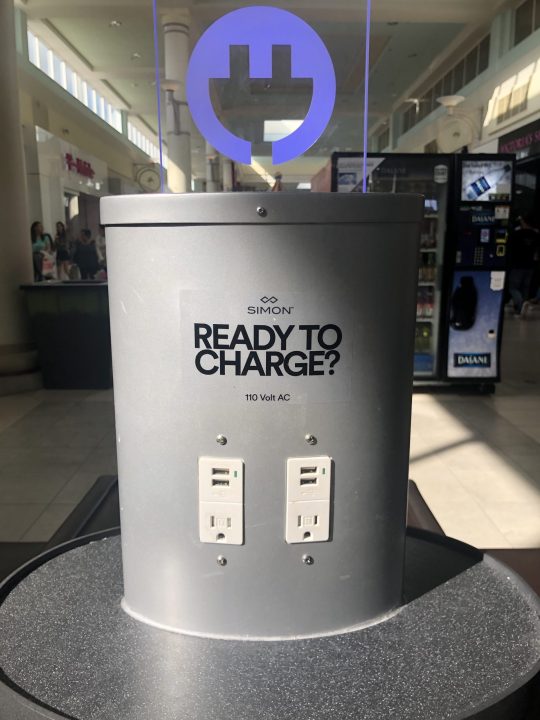
While we travel this Thanksgiving and holiday season, be wary of the different types of public USB charging stations. Your phone might just be dumping all of your personal data while you refill your battery for your next run of Mario Kart.
USB ports were created to be used for power and data transfer. Public USB ports on the other hand are designed to provide power solutions to people on the move who have either flatlined or low batteries.
However, hackers have found criminal uses for these ports and are taking advantage of these to cause untold harm to innocent traveler. Indeed, it is something of a pandemic as lots of USB ports in public locations like hotels and airports are loaded with malware that could hack your phone or mobile device.
Dangers of Using Public USB Ports
Charging your phone at a public USB port has been likened to picking up a toothbrush from the sidewalk and using it to brush your teeth. Gross right? Well, that is the digital equivalent of the relationship between your phone and public USB ports. Just as you are likely to contact germs from using the dirty toothbrush on your teeth. You are also at great risk of contracting malware whenever you use public USB ports. It's that way because the same technology that makes it possible to charge your phone and transfer data has been manipulated into of vehicle for data theft. Indeed hackers have found ingenious ways to infiltrate public USB ports with malware, so whenever unsuspecting travelers stop by to power their phones, they open up their phones to malicious elements that extract valuable information to the hackers. This process is known as "juice jacking." There is also another version where a phone's camera is hacked via a gadget that is disguised as a charging station. This is known as "video jacking." Regardless of the version, victims of this process are always worse off after the encounter. Now that we have established the dangers of using public USB ports, we would like to share how to stop public USB ports from hacking your phone.
How to Protect Your Phone from USB Ports
The best way to stop your phone from being hacked via USB is to get alternative power solutions and a device that eliminates the incidence of data transmission. Here are some solutions that will be helpful.
Enable the Authentication Features on your smartphone: Most, if not all, smartphones come with authentication features that offer a level of security to your phone. So when you plug your phone into a charging station that is meant to provide power alone, you should not receive any prompt. Should you receive a prompt like" Trust this computer," then you must unplug your phone as soon as you can and warn others too.
Invest in A Power Bank: This solution is the priciest of all the solutions discussed in this article. Yet it is about the best way to stop your phone from being hacked via USB ports. It allows you to conveniently power your phone without fear of data loss or malware infection. A power bank is a portable device, so you don’t have to be scared of carrying a weighty charger, you can keep it conveniently in your handbag or pocket.
Buy A Power-Only USB Cable: There are USB cables that are specially designed to transfer only power and are impossible to transmit data with. This means that hackers will find it impossible to steal your data whenever you charge your phone at a public USB port using these kinds of cable. Most of these Power-Only USB cables are also affordable, therefore buying one won’t cost you a lot.
Get a Phone Charger: Chargers are portable and handy as they allow you to always have access to charge. This way, you get to power your phone as long as there is an AC outlet close by. This is also very important in case of emergencies, so you won't be tempted to make use of public USB stations.
Use A USB Condom: Just like its contraceptive counterpart, USB condoms come between your USB cable and the public USB port. The condom prevents the transmission of data (just as with STD's and sperm) and will stop your phone from being hacked. Therefore, you must ensure that you have a USB condom such as the Juice- jack defender.
Never unlock or use your phone while charging: It is also advisable that you avoid unlocking your phone while charging so that the phone can utilize proper encryption to ensure that hackers do not have access to the private information on your mobile device.
Charge your phone using your laptop: As an alternative, if you have your laptop with you, it is advisable that you connect your USB devices to the USB port on your laptop and charge your phone with that. This ensures that your data are safe and not made accessible to hackers.
Never grant a public port access to data on your device: If using a public USB port remains the only option you have at a time, then you must ensure that you do not give the port access to data on your device. After connecting your device to a public USB port, you might see something that pops up asking if you trust the device, kindly reject the pop-up.
Cable or Power Pack????
In all, the best way to stop public USB ports from hacking your phone is by having a portable USB charger wherever you go. However, in rare cases, when you don’t have a USB charger, you can simply plug your phone to the USB port on your laptop or buy a USB cable that disables data transfer.
To ensure you do not fall victim to hackers, you need the services of managed IT firms like the FLNerds. The FLNerds understand that threats are everywhere, and that is why we provide proactive measures in protecting your network, tech, and data. The FLNerds work by monitoring your network security, running IT security audits, and assessments to know where you are vulnerable. They also provide various solutions to ensure that your data are not compromised even in public places. Click here to find out more about FLNerds.
Read the full article
0 notes
Text
Business Network Security: Basic Security Tips for Small Businesses
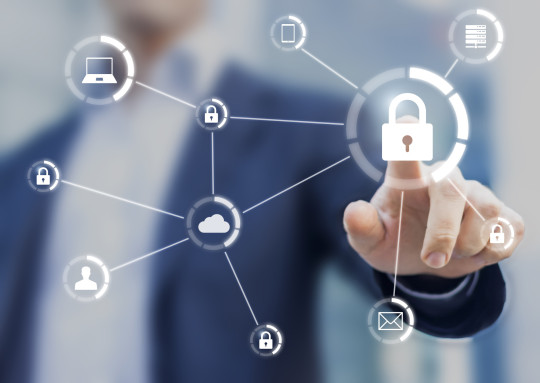
Do you believe your network is safe from a cyberattack because it’s so small? Think again!
In fact, 43% of all cyberattacks target small businesses, and this number continues to grow. Today, one out of every 40 small businesses are at risk of cybercrime with more cybercriminals seeking these businesses with minimal network security, which makes them an “easy target.”
If you want to ensure your business network security is up to par to ensure cybercriminals efforts don’t impact you, use the tips here.
Back-Up Everything
Regardless of what type of data you have, or how much of it there is, you need to back it up. Don’t store anything you can’t afford to lose in a single location or on a single device.
It’s a good idea to use an external drive for your backup. Cloud storage options are growing in popularity because of the flexibility they offer. You may also want to keep several additional hard copies of your data, too.
Create Stronger Passwords
Using passwords to protect your network is a must. You probably know this. If you want to make the most of this security measure, you must observe stringent standards.
It’s essential to create a strong password and change it regularly. You also need to implement company-wide policies to deal with issues related to sharing passwords.
Educate Your Employees
One of the biggest cybersecurity threats to your business (and any business, regardless of size) is human error. This includes mistakes like leaving an account open on a shared computer, not updating passwords regularly, downloading malicious files accidentally, and giving away information through a phishing scam.
It’s up to you to educate your employees about proper network security to help mitigate some risks. Help them know what to look for to identify phishing scams and teach them what they should do if they are a victim of this. Explain the importance of updating software too, and show them how to keep both personal and business devices updated.
Create security policies and make sure your workers understand them. The policies need to include the rules regarding network and device access, password creation and how often it should be changed, reporting procedures for stolen or lost devices, security application policies, best practices for file sharing, and other important factors.
Encrypt Everything
Backing up your data, as mentioned above, is only a good option if the information backed up is secure. The best way to keep information safe is by ensuring it is encrypted on all your devices. Also, encrypt emails that contain any sensitive information.
Limit Access
Using layered security can help you keep even extremely sensitive data safe even if there’s a breach in your network. To do this, you must limit access to specific types of information and add more layers of protection, such as increased encryption, passwords, and more.
Keep All Software Updated
Outdated software is another serious threat to modern small businesses. Regardless of if it is inventory tracking software, your operating system, anti-virus program, financial tracking software, or website content management system. You need to make sure it all remains up to date.
Usually, the older versions of software are easier to hack because nefarious individuals have figured out where the loopholes are. The updates that are created will patch the security vulnerabilities and improve overall functionality to help protect the business against malware, viruses, and other forms of hacking.
Sometimes, software updates aren’t provided for older models of hardware. This means you may have to update your computers or other hardware every few years.
Install a Firewall
Putting a firewall on your network should be a top priority. There are several options for firewall software available, so shop around to find one you know works.
Monitor Personal Devices
Running a small business often means you don’t have the capital to provide devices such as smartphones, tablets, and laptops for your employees to use. As a result, your employees may use their personal devices.
If this is the case, create policies that let your network administrator install automatic security updates, monitoring software, and call for frequent password changes. This doesn’t mean you have to invade personal privacy or disallow certain apps and software.
While this is true, you need to protect your business if employees happen to put your network at risk of an attack or breach while they are using their personal devices.
Consider Using a VPN
A VPN (virtual private network) provides an additional layer of security for web browsing. It can be particularly beneficial if you are accessing files through an unsecured or public network.
A VPN will route your data through their services first, masking your IP address and encrypting the data to keep information protected from possible hackers. If your employees use a VPN, you can significantly reduce the risk of having business files or passwords intercepted when an employee is accessing your software or accounts while on the go.
There are many large corporations that create their own VPNs. For small businesses, this may not be a practical option, but that doesn’t mean you are at a total loss. By working with a VPN service provider, you can establish these benefits for your business.
Is Your Business Network Security Up to Par?
Have you evaluated your business network security recently? If not, now may be the time to do so. If you don’t have at least some of the safeguards here in place, now is the time to consider investing in this protection.
If you need help with your network security, contact us today. Our team can help ensure your small business is protected from cybercriminals and their nefarious methods to steal your data and cripple your business.
Read the full article
0 notes
Text
Business Data Protection: How to Keep Your Customers' Data Secure
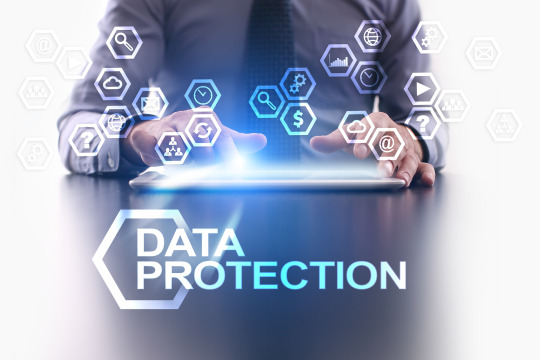
Keeping client data safe is vital for any business. We look at some of the key steps you need to take in order to have strong business data protection.
How would you like to wake up to a $3 million hole in your balance sheet? That's how much your business could lose after a cybersecurity breach. Aside from the financial hit, your company's reputation can take a severe dip that’s hard to turn around once malicious actions strike. With such stakes on the table, ensuring your business has top of the line cybersecurity is critical to its survival. Let’s take a look at some business data protection ideas to help you preserve your customers’ security and privacy.
1. Use Strong Passwords
Passwords are the first line of defense against unauthorized access to your firm’s information, but they can only be effective when appropriately used. Your employees must use different passwords for each system they access. It may feel cumbersome, but it’s hard to steal data when you need a new password with each instance.
Adopt a password manager so that your staff can find it easier to use different passwords on each system. With a password manager, all they will need to do is recall one master password.
Additionally, use strong passwords that rely on at least eight characters, numbers, and symbols. These are harder to crack and help stop more straightforward breaches in their tracks.
You should also sensitive your staff on best practices in using passwords while at work. Train them on avoiding passwords that are easy to guess, such as birthdays or the names of family members.
You can also begin timing out passwords across the system. That will give your staff the impetus they need to regularly change their passwords as a stale one gets easier to crack in time.
2. Regulate Access
How your team access the information they require has an impact on the level of security your system has. It is not every employee that requires unfettered access to the system to get their work done. A mandatory login system is an elemental requirement that helps screen which employees are using the system and for how long.
Once you adopt a login system, you can make automatic logouts after a set period a feature. That way, should an employee leave their device unattended, the chances of an intruder accessing the system via such a device are minimized. The automatic logout period should not be too long, but neither should it be too short as that can interfere with the team's workflow.
When an employee leaves the organization, you should immediately revoke any access rights they had to avoid potential breaches. These privileges include any passwords, access codes, or keywords they used while working for the organization.
3. Disposing of Data Correctly
How you get rid of the customer data you already have can be a loophole in your security unless you do it properly. Developing a data destruction policy for your business codifies the protocol that present and future employees can use when it comes to protecting your data during destruction.
When you are getting rid of devices the business has been using, you should take care to scrub the data off them. Failure to do that might allow a malicious actor to retrieve sensitive company information that compromises the safety and privacy of your customers.
It’s not just the hardware that needs a destruction protocol but also your software. For example, when you delete customer information from your hard drive, it does not mean it’s gone. Similarly, reinstalling your operating system doesn’t wipe all your data.
A malicious actor can easily gain access to your information using free data retrieval tools. In such cases, you should make sure that your data disposal partner overwrites the data you want to delete several times. That will make it unrecoverable even with retrieval tools.
4. Automatic Updates
A favored method of conducting cybersecurity breaches bad actors use is to scan a firm's system for old software that has known bugs. Since these system vulnerabilities date back to a previous period, there is a public record of how to use them for exploits.
In light of this, you need to set the software the firm uses to download and install new updates that developers push automatically. Installing the latest fixes and patches helps minimize the possible points bad actors can use to hack into your system and steal customer data.
5. Secure Online Payments
Do your customers pay using online platforms? Then that increases the probability of your being a target for malicious actors. Customer transaction information is valuable on the black market, and how you store, hold, and transmit customer card information is critical.
The Payment Card Industry Data Security Standards (PCI DSS) outlines basic PCI security standards a business should adopt to protect their customer card information. Adopt these standards across your system to ward off potential card-related breaches.
6. Only Keep Data You Need
While data is the new oil, you don’t need to hoard every bit of it if it doesn’t help your business. The more information you hold, the juicer of a target you become in the eyes of malicious actors.
For example, if you only need the customers' names, then storing their birthday information only increases the probability that you will get hacked. Vet the customer data you hold to assess its importance in your operation so that you avoid any unnecessary risk.
7. Draft a Breach Policy
Part of keeping your customer data safe involves knowing what to do once you detect a possible data breach. You need a premeditated plan that everyone in the firm can follow to ensure customer privacy and safety after a reach.
Conduct a network security audit to identify potential weak spots in your core infrastructure that needs addressing. You can follow this audit up with a further assessment of auxiliary units in your technology infrastructure to close off any loopholes that an intruder can use.
Once you spot and close off all weak spots, use the information you’ve gleaned to document every part of your business' technology system and possible actions to take during an attack.
Do You Need Business Data Protection?
Every year businesses stand to lose money and suffer damaged reputations due to cybersecurity breaches. Such extreme risks make business data protection a high priority in your overall strategy. Protect your customers’ security and privacy to differentiate yourself from the pack.
Do you have a cybersecurity emergency? FL Nerds has 20 years' experience in helping firms protect their customer data. Talk to us for round the clock assistance on keeping your technology system safe.
Read the full article
1 note
·
View note